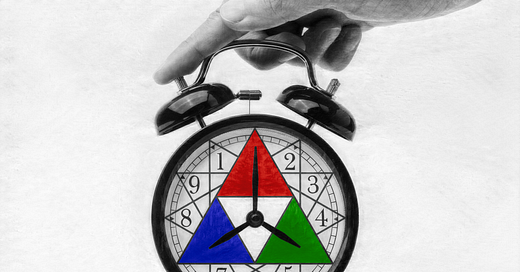The Wheel of Wisdom is my reminder that in order to feel the goodness of belonging, I have to feel my feelings. Feelings are essential to our sacred anatomy. They are messengers of our inborn intelligence, inviting us to pause, step back, and behold how we are playing our human character—which we are always in a process of creating.
In practical terms, the Wheel of Wisdom invites us to consider anger, fear, and sorrow as divine alarms that indicate where our human avatars (egos) have lost contact with nature and soul.
Here’s one way to interpret what these feeling messengers are saying…
Simply put, anger is a physical protest, indicating a boundary needs attention. When boundaries are too narrow, wide, or trespassed, some form of anger will prompt you to honor somatic belonging—the inborn balance of sovereignty and interdependence. Anger invites you to be present to your body and to the bodies around you. It is a wake up call to act in ways that respect autonomy and interrelatedness in you and every other being and element of nature.
Likewise, psychological fear is a mental objection to uncertainty, and invites a broader perspective. When your perceived security is threatened, some form of fear will arise and bid you to recognize a larger truth and cultivate trust in social belonging—the unfathomable validity of everything in the fluctuating web of life. Fear asks you to see yourself and everything else through a wider lens and appreciate the unfolding mystery of being.
Similarly, sorrow is an emotional grievance, calling out for greater heart connection. When you have lost the thread of meaning or are closed to vulnerability, some form of sorrow will tug you toward intimate belonging—a tenderheartedness that inherently expresses beauty and meaning. Sorrow encourages you to feel compassion for yourself and everything, and to let the wisdom of the heart guide your way.
It’s often the difficult feelings that compel me to pause and become more present to living. However, like clockwork, when I give myself space to feel what’s difficult, I then experience more of what’s pleasurable. When I stop fighting against what I don’t want, I have more capacity to contribute to what I’d prefer.
Each time anger, fear, and sorrow get our attention, it’s an opportunity to be in relationship with our wholeness…and a felt sense of belonging.
Rather than ignoring, deflecting, burying, or wallowing in these feeling messengers, we can pause, thank them for their reminder, and gently consider:
Am I overriding my own or another’s boundaries?
Am I mistrustful of life and insisting on certainty?
Am I devaluing my own or another’s emotional vulnerability?
Pulling a card from the Wheel’s oracle deck can stimulate insights. Take a few breaths to cultivate some internal space, then draw a card at random, with the intention that it reveal what is needed right now. When I do this, and allow my innate curiosity and imagination to play, insights naturally arise. Looking up the card you pulled, in the Wheel of Wisdom book, is a helpful next step in the process.
If you try this, and are willing to share, please let me know what you discover!
Wheel of Wisdom is a reader-supported publication. Free and paid subscribers receive the same content. Paid subscribers also contribute to my livelihood…and for that I’m grateful.




